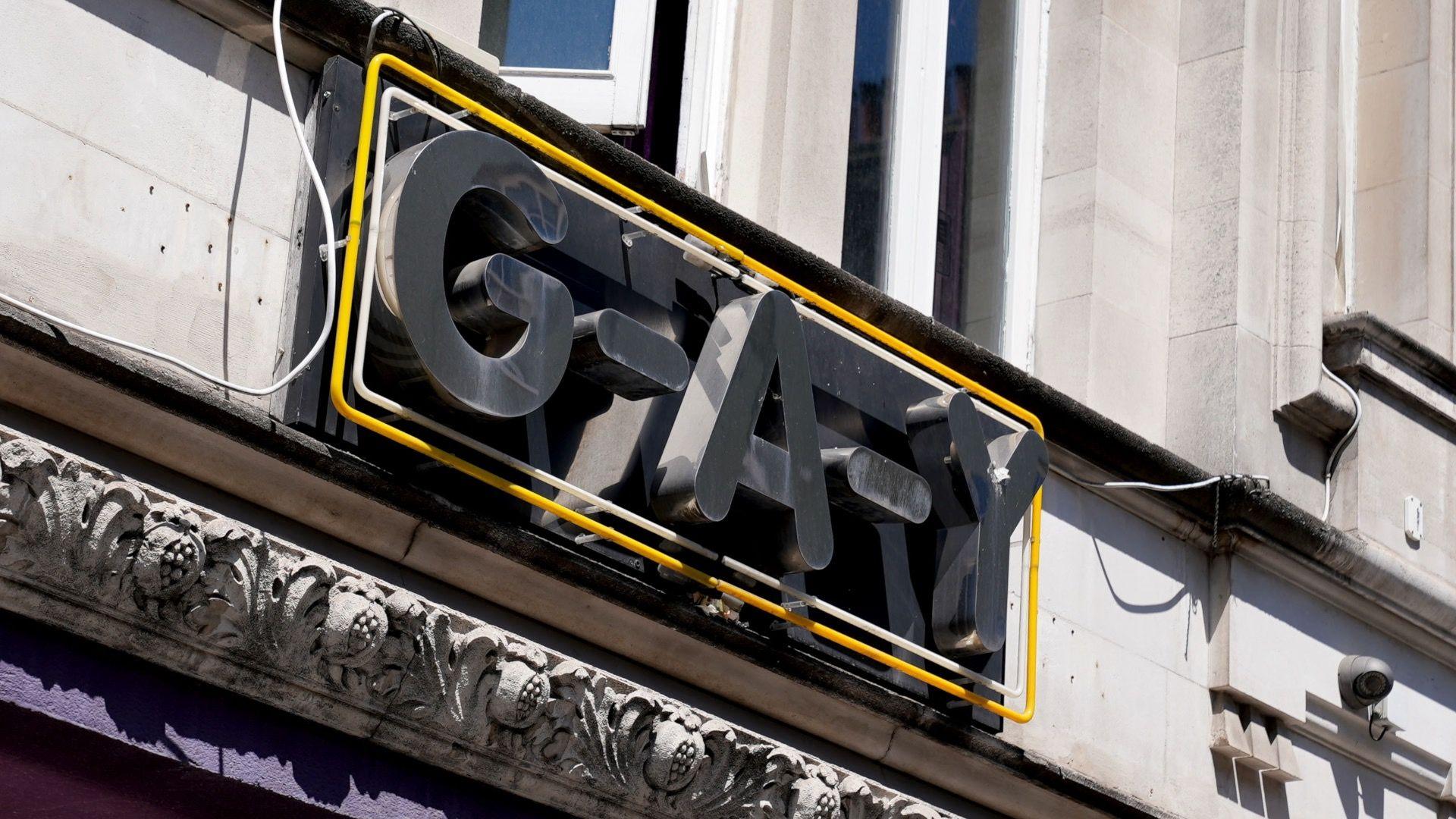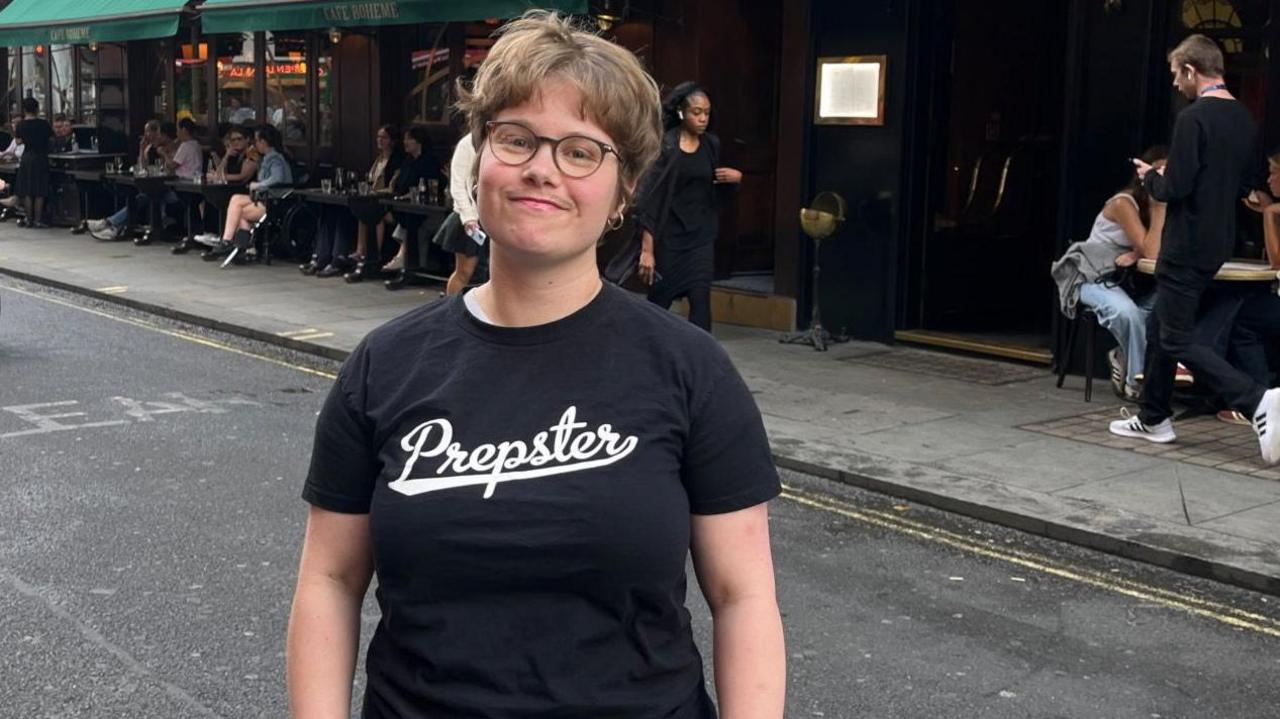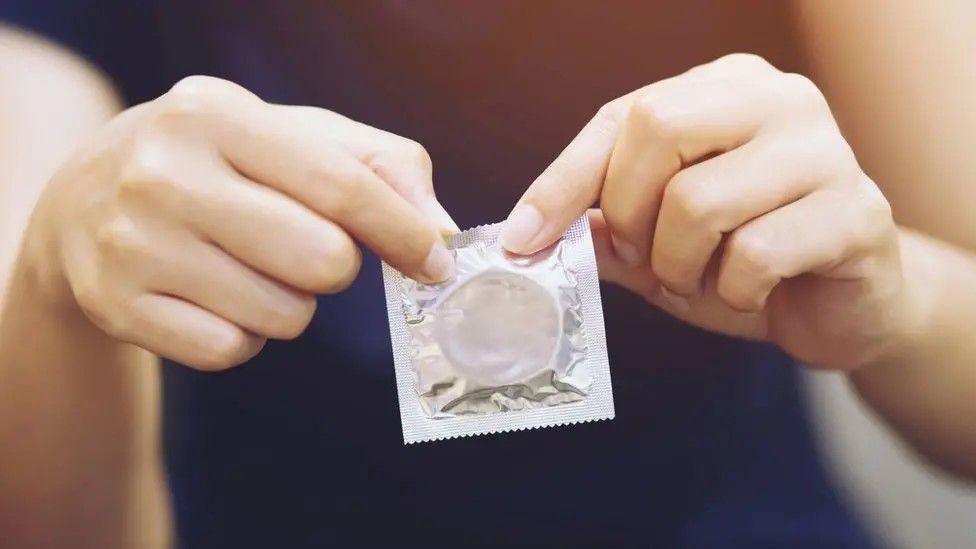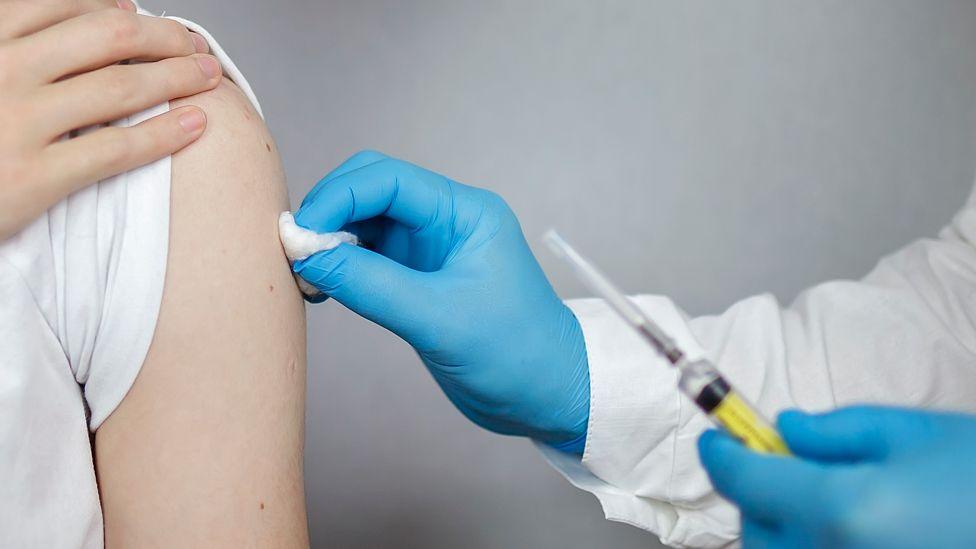Gonorrhoea vaccines served up at Soho's G-A-Y Bar

The roll out of the "world-first" vaccination programme against gonorrhoea began last month
- Published
Gonorrhoea vaccines and a new antibiotic treatment are being offered at a Soho bar as part of an effort to reduce rates of sexually transmitted infections (STIs).
The pop-up events, which are being hosted in G-A-Y Bar, aim to make it easier for those at the highest risk to get the vaccine.
Figures show that gay and bisexual men are disproportionately affected by STIs, accounting for 75% of syphilis and 70% gonorrhoea cases in London last year.
The events have been organised by 56 Dean Street, an NHS clinic which has been at the forefront of innovations in sexual health, including same-day STI testing and expanded access to PrEP, a medication that helps prevent HIV.
Lawrence O'Connell, a senior nurse at the clinic, said stigma and anxiety around clinical settings can prevent people from seeking support, which is why 56 Dean Street wanted to "be out and be seen" and meet people where they are.
A recent event saw a long queue stretch down Old Compton Street, and inside, booths had been turned into makeshift consultation rooms.
G-A-Y maintained its party atmosphere, however, as pop anthems continued playing in the background.
The outreach events are part of a wider public health push to tackle rising STI rates.
In 2023, gonorrhoea cases in England reached a record high with over 85,000 diagnoses, triple the number reported in 2012.
Although that figure dropped to 71,000 last year, experts are increasingly worried about a small but growing number of antibiotic resistant cases.
The vaccine, which began being rolled out last month, was originally developed to protect against meningitis B, but recent studies suggested it reduced the risk of gonorrhoea by around 40%.
It not only protects individuals, but also helps to break the chain of infection, which experts say will reduce the overall spread.
'It's not shameful'
Other STIs are also on the rise, with syphilis cases last year reaching their highest level in seven decades.
Alongside the vaccine, a new antibiotic treatment known as DoxyPEP is also being offered at the pop-ups.
If taken within 72 hours of sex, it significantly reduces the risk of contracting infections like chlamydia and syphilis.
Its use is being carefully monitored due to concerns about antibiotic resistance.
DoxyPEP is currently only recommended for gay and bisexual men and trans women who have recently had an STI or who regularly have new sexual partners.
Mr O'Connell said the likelihood of resistance is low, and encouraged people at risk to visit the clinic and speak to someone about whether it is right for them.
What is gonorrhoea?
Gonorrhoea is a sexually transmitted infection passed on through unprotected sex. It's treated with antibiotics. If it's not treated, it can cause serious health problems.
Not everyone gets symptoms of gonorrhoea, but for people who do, they usually start around two weeks after infection, although they sometimes do not appear until many months later.
If gonorrhoea is not treated, it can cause serious problems including:
Eye infections
An infection of the womb, fallopian tubes and ovaries (pelvic inflammatory disease), which can lead to infertility if not treated
Infection in the testicles or prostate (prostatitis)
More than 550 people have attended the pop-up events at G-A-Y so far. Andrew and Calum came together after seeing it advertised on social media.
Calum said he felt fortunate the two friends talked openly about sexual health with each other.
"It's something we talk about a lot. It's really nice, it's not shameful."
Andrew said he was keen to get the vaccine and DoxyPEP as soon as he could. "We're single and we live in London. We may as well be safe."
Calum believes that within the community "there is a focus on HIV," but less so for other STIs.

Ela is one of more than 500 people to get the vaccine at G-A-Y so far
Ela attended the pop-up after initially being told by a local sexual health clinic that they might not meet the eligibility criteria.
"People are very aware that trans people exist, but sometimes I have to fight my corner. I've been told before I should masc up to get a vaccine," they said.
"Knowing I've got DoxyPEP and the vaccine will take a lot of anxiety off sex for me."
Mr O'Connell said the treatments shouldn't be seen as standalone solutions, but as an extra level of protection alongside other measures like using condoms and taking PrEP.
People who may be eligible for the vaccine and DoxyPEP are asked to contact their local sexual health clinic, external. An additional two events are scheduled at G-A-Y on 18 and 25 September, between 16:00 - 19:00.
Listen to the best of BBC Radio London on Sounds and follow BBC London on Facebook, external, X, external, and Instagram, external. Send your story ideas to hello.bbclondon@bbc.co.uk, external
- Published3 June

